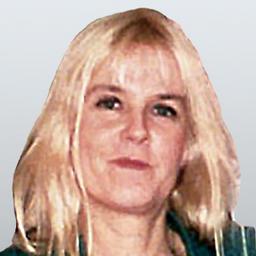With the holidays approaching, few want to think about their weight. It will certainly go up not down before 2020 arrives. People will probably start thinking about their weight on January 2—and joining gyms.
It is true that in the US and elsewhere, people have never been bigger. The average American man today weighs 194 pounds and the average woman 165 pounds. The growing girth has led to the creation of special-sized ambulances, operating tables and coffins as well as bigger seats on planes and trains.
But it is not entirely the fault of the overweight people. If people are hooked on junk and fast food with its excessive fat, sugar, and salt, it is not a coincidence. It is the plan of junk and fast food makers and marketers.
For example, “food technologists” use $40,000 devices that simulate a chewing mouth to test and perfect chips. “People like a chip that snaps with about four pounds of pressure per square inch,” said Michael Moss, author of Salt Sugar Fat: How the Food Giants Hooked Us, so food technologists seek the perfect breakpoint.
“Chew time” itself has shrunk says another food specialist. “We used to have foods that we chewed 15 times and 20 times and 30 times before we swallowed,” says Gail Vance Civille, of the consumer research firm Sensory Spectrum. “Now, there’s rarely a food out there, outside of sweet, chewy candy, that you have to chew more than 12 times before it’s gone.”
Contributing to the obesity epidemic is the ubiquity of snacks themselves. There was a time when snacks weren’t available in banks, bookstores, body shops, hardware stores, and hospitals because people seldom ate between meals. When some Europeans visiting a US mall saw people in the food court eating cheese fries at 10:30 in the morning, they asked, “What meal is that?” Good question.
Supersizing, free refills, and all-you-can-eat buffets compound the obesity problem as do size inflation and baggy and low rider fashions. (More than 100 years ago our ancestors called the elastic waistband “the Devil’s playground” for just this reason. The fit of clothes kept us at our correct weight.)
Also abetting the obesity epidemic was US farmers’ switch to high-fructose corn syrup, corn-based ethanol and partially hydrogenated corn oil, all fattening, because of new government policies.
Finally, weight is so relative that if one’s friends weight 170 pounds –– which they increasingly do –– a woman who weighs 160 can feel “thin.”
Mainstream media deplores “fat-shaming” when someone, usually a woman, is called out for carrying excess fat on her frame. The fat acceptance movement backs up the sentiments. While the impulse to de-stigmatize overweight people is understandable, no one is “born” fat as they are with diseases and disabilities. Moreover, food may be addicting but, like cigarettes, people can and do quit.
Obesity puts people at great risk of cancer, heart disease, stroke, hypertension, Type 2 diabetes, gallbladder disease, sleep apnea, osteoarthritis and chronic pain and raises everyone’s health care costs. (It also makes money for drug manufacturers treating the many conditions it causes.) While obesity should not be shamed, neither should it be accepted as the new normal—as food giants hope.
Martha Rosenberg is author of the award-cited food exposé “Born With a Junk Food Deficiency,” distributed by Random House. A nationally known muckraker, she has lectured at the university and medical school level and appeared on radio and television.





